Police will be prevented from accessing journalists’ sources without the permission of a judge after the Home Office agreed to rush through emergency guidelines before the next election, the Guardian has learned.
In a letter to Labour MP Jack Dromey, Karen Bradley, a Home Office minister, said the government does not have time to bring through primary legislation until the next parliament, but confirmed it would introduce interim guidelines that will require the police to gain judicial approval before they can obtain information about journalists’ sources.
The government has agreed to the changes after it emerged that the police have systematically been using the Regulation of Investigatory Powers Act 2000 (Ripa) to require phone companies to hand over phone records and internet email logs of reporters, which has had the effect of discouraging both whistleblowing and challenging journalism.
Under the new guidelines, the police would be required to use production orders, which are judicially authorised, under the Police and Criminal Evidence Act 1984 (Pace) for applications to see communications data that reveal journalistic sources.
Bradley said that the government would shortly publish draft clauses that would form the basis of new legislation early in the next parliament.
Campaigners welcomed the news. Evan Harris, campaign director at Hacked Off and a former Liberal Democrat MP, said: “The Tories talk grandly about press freedom but do nothing concrete. Since source protection is a critical part of the public interest role played by newspapers and broadcasters, Hacked Off decided to force the question. We are delighted it has succeeded.”
A spokesman for deputy prime minister Nick Clegg said he was “glad the Tories have finally found some sense and have at the least agreed to ensure temporary measures are put in place to protect journalist sources”.
Sajid Javid, the culture secretary, previously signalled that he would like to see Ripa amended before the election in May after it emerged 608 journalists’ phone records had been accessed by police in order to investigate leaks.
The revelation was contained in a report by the interception of communications commissioner Sir Anthony May. Since then, Clegg has written to Theresa May, the home secretary, urging her to bring forward changes in the law within the next month.
The review of surveillance powers was ordered after it emerged Scotland Yard accessed the phone records of the Sun’s political editor Tom Newton Dunn to find who had leaked information on the Plebgate row.
May’s report found that Ripa did not “provide adequate safeguards to protect journalistic sources” and recommended that “judicial authorisation is obtained in cases where communications data is sought to determine the source of journalistic information”.
Speaking at a lunch for political journalists in Westminster in early February, Javid confirmed he backed a change in the law: “I want to see the law changed to make it happen during this parliament, because there is no excuse for using anti-terror legislation to threaten legitimate reporting, no matter how awkward that reporting might be.
“Blowing a whistle on council corruption doesn’t warrant undercover surveillance. A front page that embarrasses a senior politician is not a threat to national security. Journalism is not terrorism.”
Javid told the lunch that he was “shocked” by the extent of official snooping on the confidential sources of journalists.
“Democracy needs journalists to function,” he said. “That is why last month’s attacks in Paris struck a chord around the world. They weren’t just an attack on a magazine, they were an attack on the ideals that underpin our way of life.
“Our journalists also face insidious threats from other quarters, be they commercial, judicial or political. Yesterday, we learnt the full extent to which Ripa was used to monitor journalists and their contacts. Like many of you, I was shocked by what was revealed.”
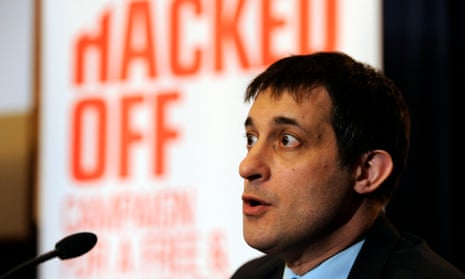
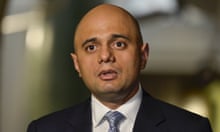
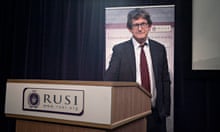
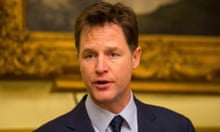


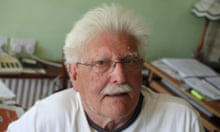
Comments (…)
Sign in or create your Guardian account to join the discussion